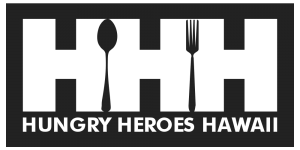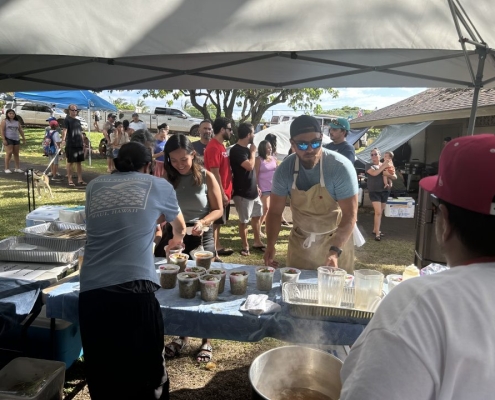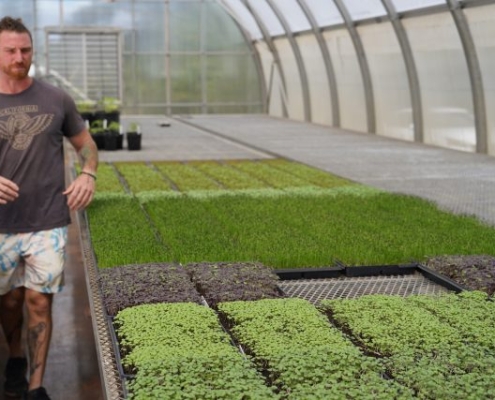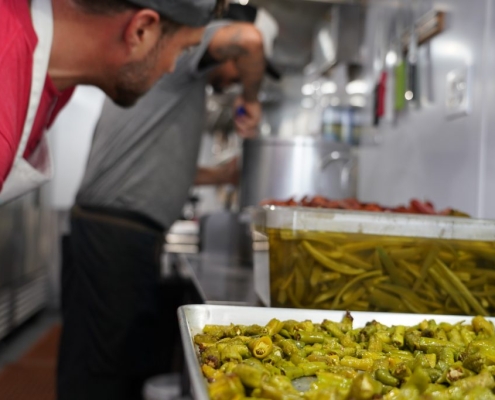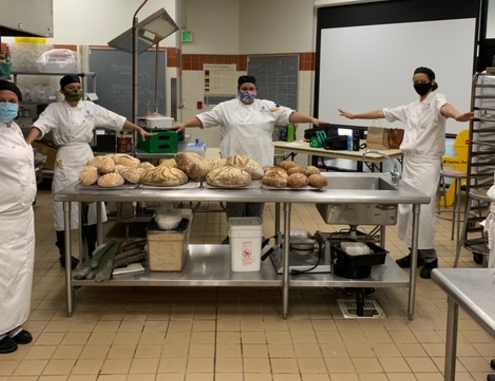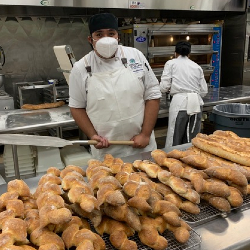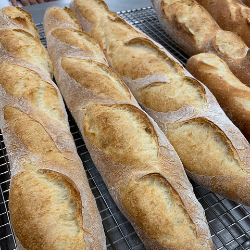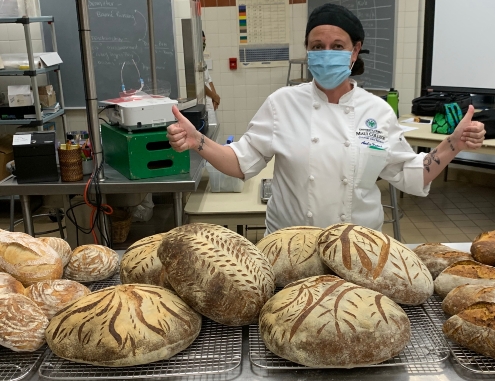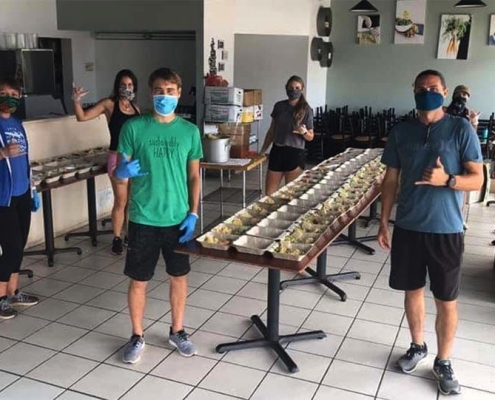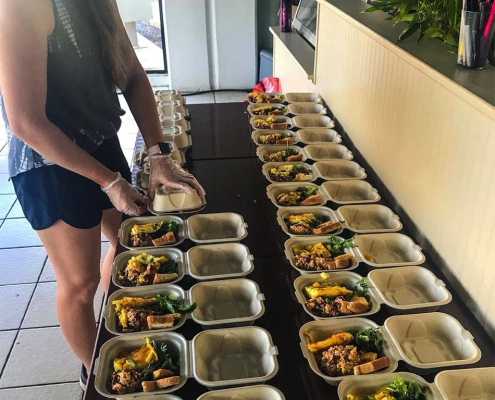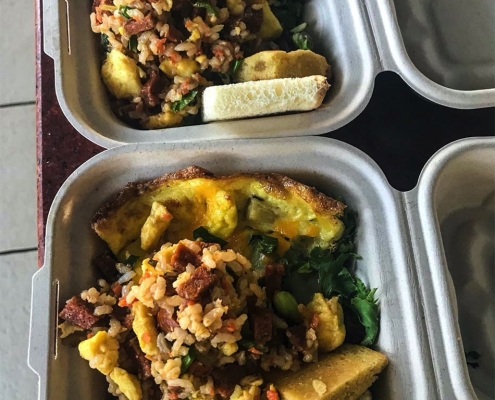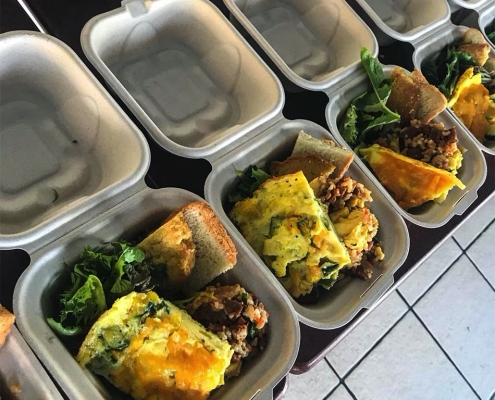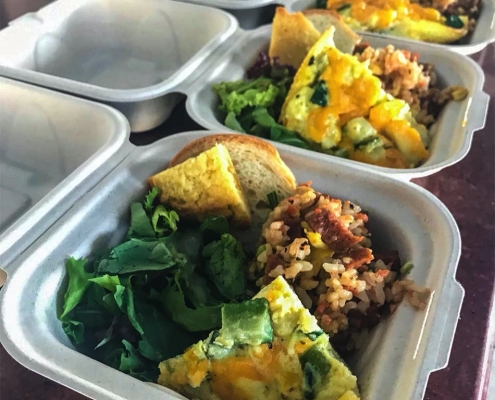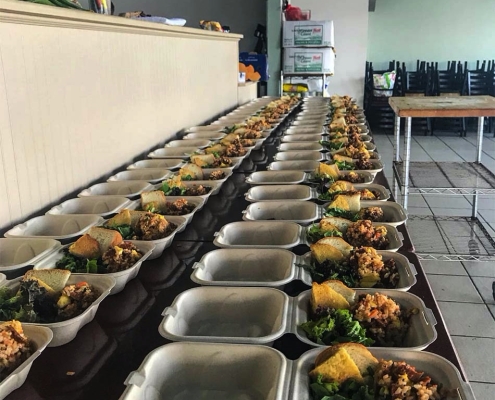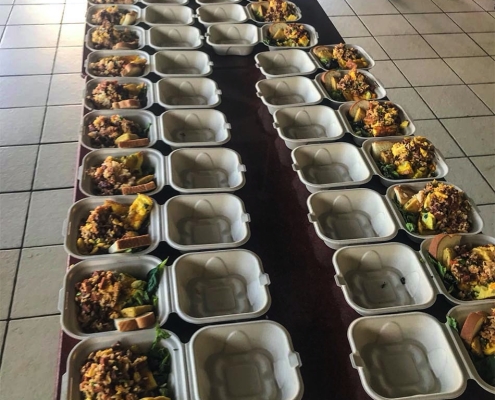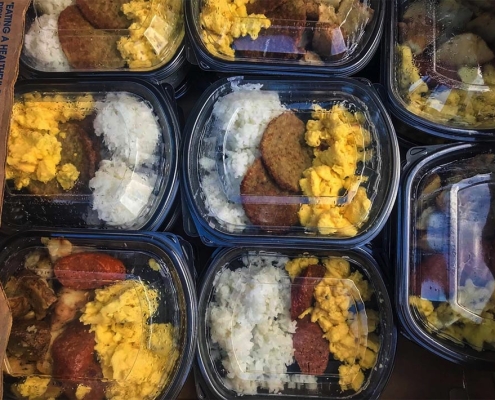Chefs Anticipate Even More Demand To Feed Maui Months After Wildfires
Farm owners and feeding operations are preparing to be in it for the long haul.
Overlooking Kapalua in West Maui, four acres of crops surround Hua Momona Foundation’s nerve center: a 40-foot trailer, shipping container and small building that acts as a commercial kitchen.
The kitchen has produced thousands of meals for those who suffered in the wake of the Aug. 8 wildfires that upturned the lives of communities in Upcountry and throughout Lahaina, where 2,200 structures were destroyed and at least 99 people were killed.
But the farm and its eponymous foundation only sees its workload increasing over the coming months and years, as the wildfires served to highlight the island’s food security issue that has persisted for years across Maui and the rest of the state.
Chefs at Hua Momona Foundation prepare meals for those who need them across the fire-affected communities whose worlds were upturned during the Aug. 8 fires. (Thomas Heaton/Civil Beat/2023)
In the immediate aftermath of the fires, private chef and restaurateur Jason Raffin contacted the farm’s owner and CEO, Gary Grube, a tech industry executive and inventor who opened the doors to his facility, including a 40-foot kitchen trailer.
An ad-hoc team of reputable chefs mobilized to cook fresh meals to be delivered across affected communities as it had during the Covid-19 pandemic, using its own produce and from other local farms.
The farm kept running, producing food from its land and 4,000-square-foot greenhouse, which it started in 2019 to supply restaurants with microgreens across the island.
Chef Jason Raffin checks the produce at Hua Momomona Farm’s greenhouse, which grows microgreens for a large portion of Maui’s restaurants and hotels. (Thomas Heaton/Civil Beat/2023)
“We basically started pushing out food,” Raffin said. “We started at like 150 plates every other day, then it moved to 250. Then it went to 350, 450, 550, 750 — and that’s where we found a comfortable mark.”
The work has been essentially nonstop, cooking meals for thrice-weekly deliveries, with the help of Hungry Heroes Hawaii, which delivers directly to the doors of those who need food.
But the need will continue into the future, says Grube, who purchased the 25 acres of land in 2016.
“I keep telling people that we’re in this for the long haul,” Grube said, noting how he has not seen the demand start to trail off yet.
Pandemic Lessons
Steven Calkins, Hungry Heroes Hawaii founder and president, says he believes demand is actually on the up.
The nonprofit, which relies on donations, has so far purchased about $200,000 worth of food from farms across Maui since the week of the fires and distributed 128,000 pounds of food to the west side — about 8,000 pounds per week.
Calkins estimates that works out to about 350,000 meals since the Aug. 8 fires.
That is in addition to the thousands of prepared meals it has delivered from kitchens around the island, including Hua Momona, with the 2,700 individual volunteers who have worked with HHH.
“I know we could probably do double that if we had the funding for it,” Calkins said. “We are not taking care of all the need on the west side right now.”
‘Hawaii Grown’ Special Series
This ongoing series delves deep into what it would take for Hawaii to decrease its dependence on imported food and be better positioned to grow its own.
READ THE SERIES
Lessons learned during the pandemic helped position Calkins and other feeding operations to provide the level of service they have during the aftermath of the fires.
Hungry Heroes started as a group of people cooking for the unhoused in Lahaina during the pandemic and grew to cooking 450 meals per day. Between the pandemic’s end and the Aug. 8 fires, it cooked about 200,000 meals for the community, Calkins said.
Moving Forward
Chef Hui was another group of chefs and food industry workers that took lessons from the pandemic, taking buying from farmers and food producers to produce 10,000 meals each day.
The hui will be starting to transition on Nov. 10 away from its daily meal distributions to focus more on feeding students, the homeless population and doing specific holiday-focused feeding programs.
The transition period is intended to allow for the state or county to take over by contracting and funding the hui’s chefs to continue their work, co-founder Amanda Noguchi said.
Volunteers with Chef Hui distribute pots of noodles at a distribution hub, as part of their work to feed people affected by the Aug. 8 wildfires. (Courtesy: Chef Hui)
Through the work in the pandemic and in the aftermath of the fires, Noguchi says she believes the feeding programs and the community-based networks have shown the way for how Hawaii can deal with the immediate food-related effects of disaster.
“It’s more that we’re slowing down the system to allow people time to think about what the next chapter is for them as we get back to some sense of normalcy,” Noguchi said.
Meanwhile, at Hua Momomona, the foundation and farm is developing its land further to increase its food production and become a more sustainable farm, all so that it can continue its feeding programs at the same level.
That includes building back up its microgreens trade, which was just about destroyed during the Aug. 8 fires, as well as building out the farm’s events business.
Grube, the farm’s owner, says he feels like the need will remain high at least for a year.
“The level of food insecurity on Maui in total probably tripled as a result of the fires, he said. “That just doesn’t go away.”
“Hawaii Grown” is funded in part by grants from Ulupono Fund at the Hawaii Community Foundation and the Frost Family Foundation.
Civil Beat’s coverage of Maui County is supported in part by grants from the Nuestro Futuro Foundation.
